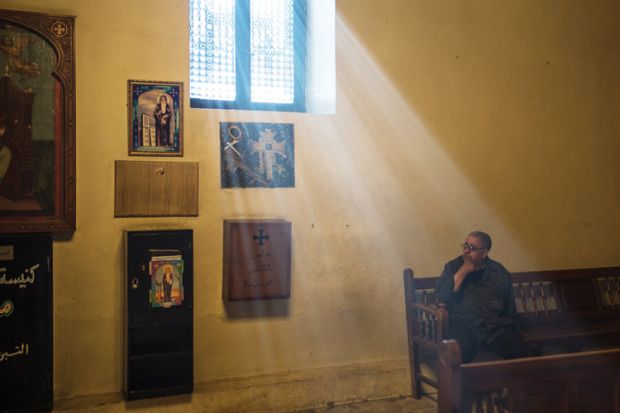Historically, a secular political order has been seen as a source of emancipation and political equality for religious minorities in plural societies. As violence against Christians and other religious minorities has grown in the Middle East, Western media have pointed to primordial conflicts, or to Islam’s inherent intolerance in a region of the world where political secularism has failed.
Saba Mahmood rejects such analyses as simplistic and deeply misguided. Focusing on postcolonial Egypt, Religious Difference in a Secular Age identifies political secularism itself as a primary source of interfaith conflicts. Mahmood investigates how secularism has been manifested in modern state building since the late 19th century, and looks at its impact on the position of Egypt’s Coptic minority as well as its tiny Baha’i community. She challenges our conceptions of political secularism, and what it entails with reference to minority rights, religious liberty and the place of religion in modern state building.
Early on, she identifies a series of contradictions that are built into modern secular governance; first, that despite its claim to religious neutrality, the modern secular state engages in a regulation and management of religious life that is historically unprecedented. Second, despite a commitment to levelling religious difference in the political sphere, modern secular governance transforms – and in some respects intensifies – existing interfaith inequalities. As a result, Mahmood argues, modern secular governance in itself has “contributed to the exacerbation of religious tensions in postcolonial Egypt, hardening interfaith boundaries and polarizing religious differences”.
Mahmood, an anthropologist based at the University of California, Berkeley, is not afraid to pick a fight. In Politics of Piety: The Islamic Revival and the Feminist Subject (2004), her groundbreaking first book, she followed members of a women’s mosque in Cairo, describing their experiences and capacity for self-actualisation in ways that challenged central tenets of Western liberal feminism. Here, she questions central elements of Western liberal thought by unmasking the workings of political secularism. Unlike Politics of Piety, however, Religious Difference in a Secular Age relies heavily on historical material, court documents and media sources, and much less on ethnographic material. Throughout the book, Mahmood demonstrates how political secularism tends to privilege the religious beliefs held by majorities: in Europe, it is fused with notions of Christian supremacy and of Christianity as a European cultural heritage, and in the Middle East, with notions of Islamic supremacy.
In the first part of the book, Mahmood tracks key shifts in the meaning of religious liberty and minority rights between the 19th and 20th centuries as these concepts travelled between Western Europe and the Middle East. She forcefully demonstrates how these seemingly benign concepts have been historically intertwined in a colonial agenda and also served to privilege specific forms of religiosity, in particular individualised, Protestant Christianity, at the expense of Coptic and Eastern Orthodox Christianity.
Mahmood goes on, in the book’s second half, to examine three sites of controversy concerning the place of religious minorities in today’s Egypt: incidents of interreligious marriage and conversion, the civil and political status of Baha’is in the face of state prohibition of their faith, and the publication of a controversial novel about the early history of the Coptic Orthodox church. In each of these sites, she shows how the tension between accommodating difference and enabling political equality is made manifest in different ways.
Thoroughly researched and ambitious in scope, Mahmood’s latest study is an essential contribution to our understanding of secularism, minority relations and the study of religion in plural societies.
Bård Kårtveit is postdoctoral fellow in the department of cultural studies and Oriental languages, University of Oslo.
Religious Difference in a Secular Age: A Minority Report
By Saba Mahmood
Princeton University Press, 248pp, £55.00 and £16.95
ISBN 9780691153278 and 3285
Published 25 November 2015
后记
Print headline: Caught between church and state




